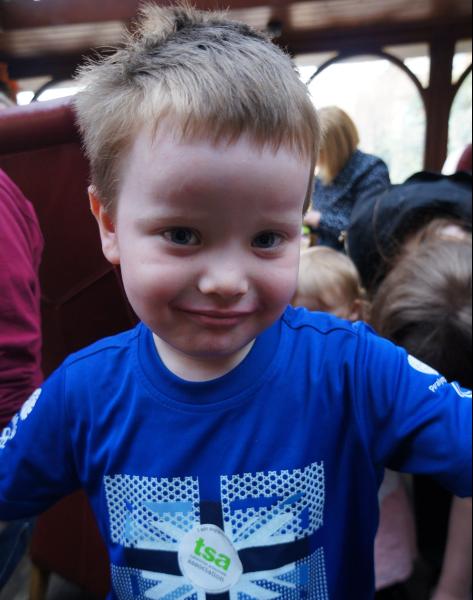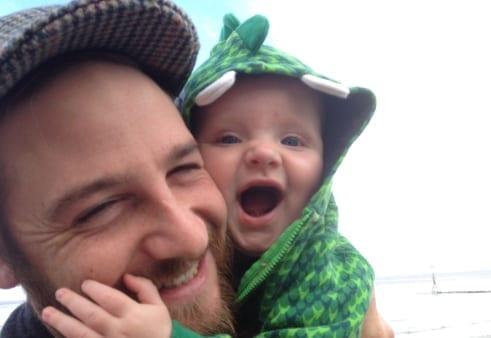What is Tuberous Sclerosis?
What is Tuberous Sclerosis?
As part of our series on rare epilepsies, we want to talk to you about Tuberous Sclerosis. Tuberous Sclerosis is a rare, genetic condition that affects different parts of the body. It’s also called Tuberous Sclerosis Complex (TSC), and appears in 1 out of 6,000 people. It occurs in boys and girls and in all ethnic groups.
TSC causes non-cancerous tumours to develop in different parts of the body. These tumours most often affect the brain, skin, kidneys, heart, eyes and lungs. Symptoms can range from mild to severe, and may include:
- Seizures (epilepsy)
- Learning disabilities
- Autism
- Behavioural problems
- Skin changes
- Heart tumours (rhabdomyoma)
- Kidney disease
- Lung tumours
Signs of TSC usually appear during the first year of life, but other symptoms can take years to develop! This can mean that TSC may not be diagnosed until a child is a teenager or an adult. TSC is very rare, so it’s common for people to not have heard of it before. It’s completely normal to have lots of questions when a family member is facing a new diagnosis.
How does Tuberous Sclerosis Complex differ from other types of epilepsy?
Epilepsy is very common in TSC and occurs in 80 to 90% of people diagnosed with TSC. One of the most common seizure types in TSC is infantile spasms. These usually appear within 12 months of the baby being born.
People with TSC can also have other types of seizures, at any age. You might have heard of some of these:
- Focal seizures (partial seizures): involving jerking of one side of the face or limbs, or both.
- Atonic seizures (drop attacks): the body, arms and legs go limp causing a person to fall.
- Myoclonic seizures: brief jerks of the hands or feet, and/or the head that may cause the person to fall, stumble or drop objects.
- Absence seizures: brief periods of unconsciousness.

What causes Tuberous Sclerosis Complex?
Unlike some other forms of epilepsy, TSC is a genetic condition that a child is born with. TSC is caused by changes, called “mutations”, in one or both of the TSC1 or TSC2 genes. These genetic changes occur before a child is even born.
People with TSC have a 50% chance of passing it onto their own children. In general, individuals with TSC1 genetic mutations tend to have milder symptoms. Those people with TSC2 genetic mutations tend to have more severe symptoms.
How can it be diagnosed?
Doctors can diagnose TSC based on a physical exam, medical imaging tests, and genetic testing. In young children, a physical exam can help doctors to identify signs of TSC, such as:
- Seizures or delayed development
- White patches on the skin (hypomelanotic macules)
- Heart tumours (rhabdomyoma).
Many children are not diagnosed until later in life when their seizures begin, and other symptoms, such as small bumps on the face (facial angiofibromas) appear.
Imaging studies used to diagnose TSC include:
- Computed tomography (CT) or magnetic resonance imaging (MRI) of the brain. These tests may show tumours in the brain
- An ultrasound of the heart, liver, and kidneys, which may show tumours in those organs.
Early diagnosis can help most children with TSC to get the care they need to lead active, independent lives!

What are the effects of Tuberous Sclerosis Complex?
The symptoms and severity of TSC can be different for everyone, even in members of the same family. These can range from mild effects to more serious complications in different areas of the body.
Some TSC symptoms develop before birth, such as heart tumours. Other symptoms such as developmental delay and skin changes, appear more in childhood. Lung and kidney tumours are more likely to develop in adulthood - and new TSC symptoms can also develop at any time.
Does it affect life expectancy?
Life expectancy for individuals with TSC is different for each person. This depends on the types of symptoms they have, and how well they are controlled. With the right medical care, most people with TSC can look forward to a normal life expectancy!
Are there treatments available and is there a cure?
Although there is no cure for TSC, treatment is available for many symptoms. Epilepsy can be treated with various anti-seizure medications, although these medicines won’t always work for everyone with TSC seizures. Some other treatments for TSC epilepsy include the ketogenic diet, vagus nerve stimulation, and epilepsy surgery.
If you are caring for someone with TSC, your medical team and other professionals will help you to find the best treatment, social, management and educational plan to achieve a good quality of life! Remember, you aren’t alone and caring for someone with a rare condition can sometimes feel overwhelming. Reach out for support from others that may know what you’re going through, and connect with our parents in similar situations here.
